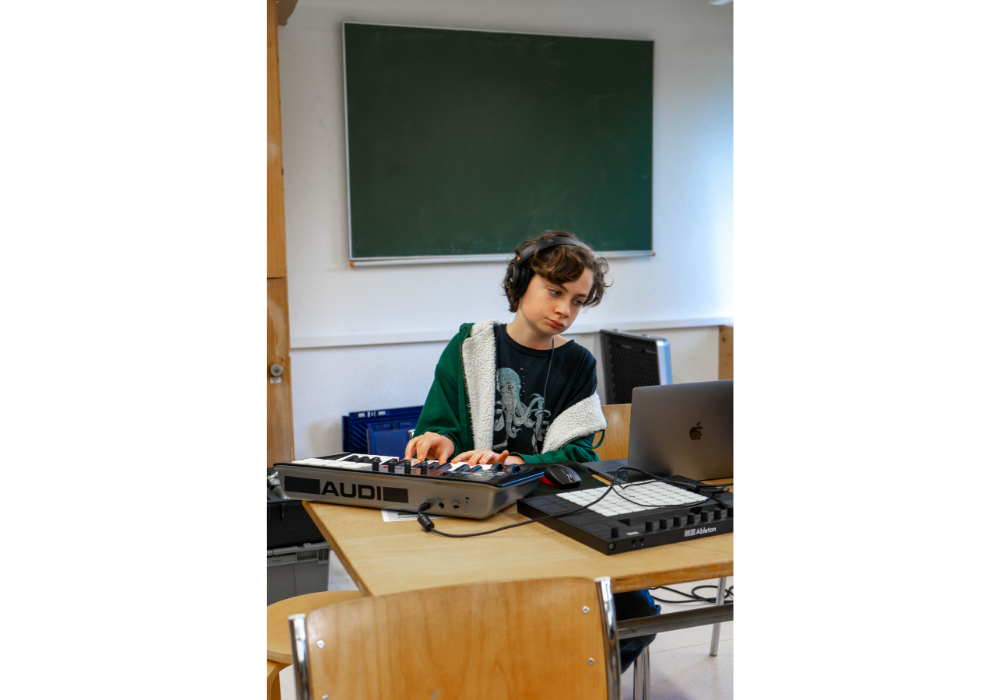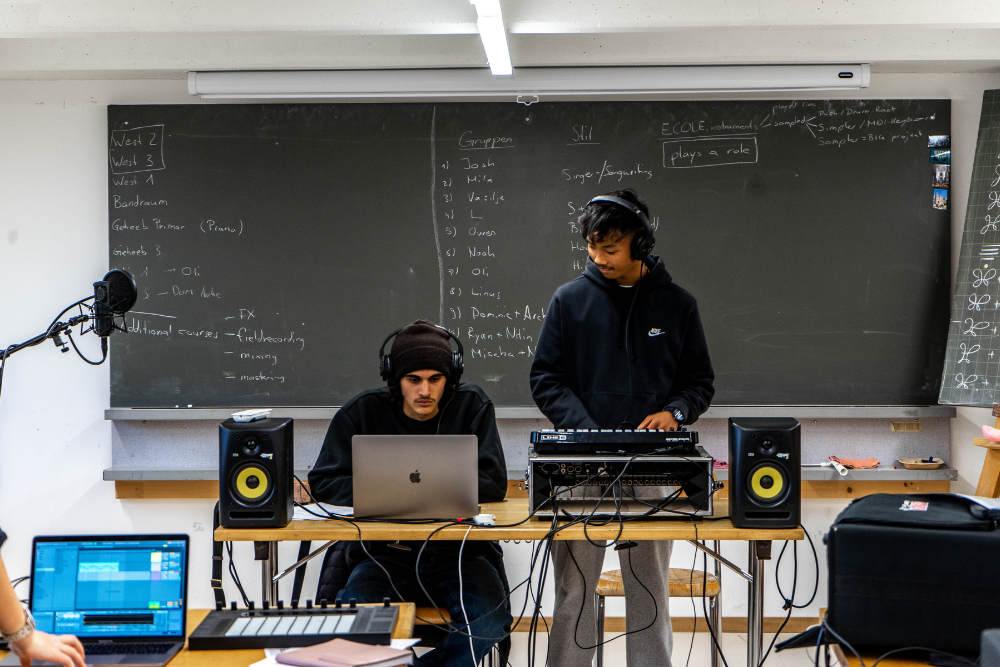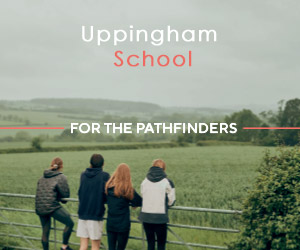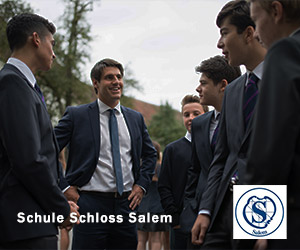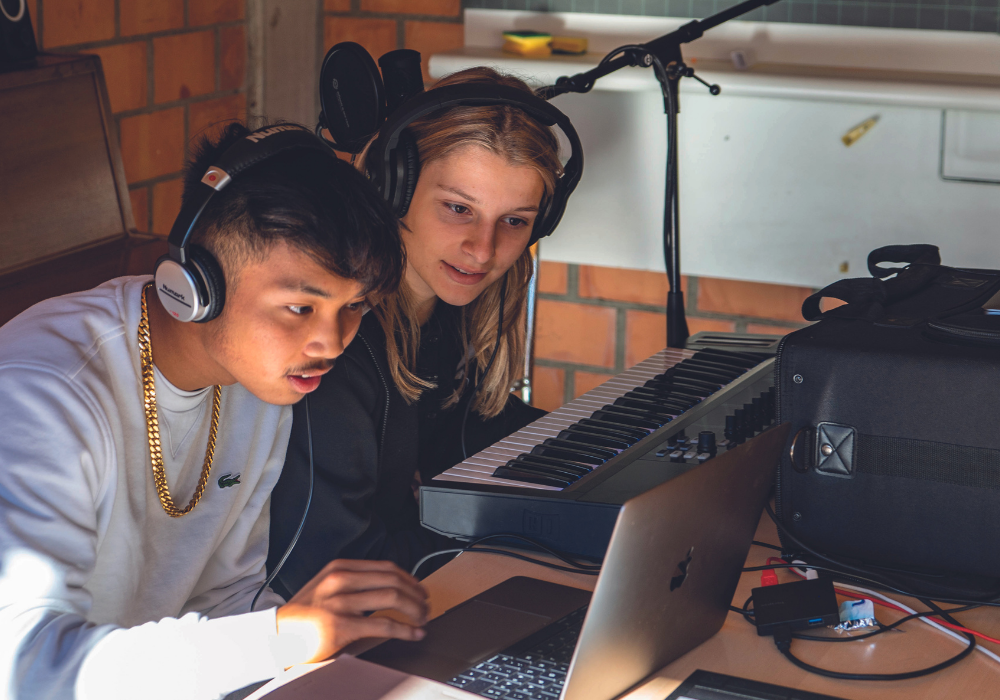
The Sound Of Music
06.04.22With music playing a central role in Ecole d’Humanite’s educational philosophy, Julia Millen spoke to Stefan Bregy, founder of the innovative ECOLE. sounds to discover how this unique project is interpreted by student
Can you describe the Ecole Sounds project and how the idea came about?
“ECOLE.sounds” is an innovative music project devised by Stefan Bregy, who provides the knowledge and technical expense required to inspire and educate students. Students’ first design instruments from scratch and then build the musing materials such as wood and metal. The instruments are then sampled with microphones and processed on a computer.
For 5 years, the musician and cultural mediator has been visiting schools throughout Switzerland with his offer “Dasfahrende Tonstudio” and showing schoolchildren how music can be produced on a computer. In the Ecole d’Humanité in Hasliberg-Goldern (Bern, Switzerland) he found a partner school that was very interested in the implementation of the extensive and interdisciplinary annual project. The project was submitted in the tête-à-tête competition of the cultural promotion of the canton of Bern in cooperation with the Stanley Thomas Johnson Foundation and was selected for winning as a finalist.
In addition to musical content; graphic, philosophical and stage construction are also included in the programme. Around 70 students, 10 teachers, the school management and Stefan Bregy are currently involved in structuring of the programme.
What’s the aim of the project?
The students produce music in three different ways with their self-made instruments:
Firstly, they create compositions in the recording studio and these are then published on the Internet.
The generative music (as it’s called) is created using algorithms and random variables and it’s then published in a sound exhibition.
Finally, students are given the opportunity to perform live at the school concert.
How will Ecole. sounds benefit students?
The students produce creative content and, in the process they,
reflect on how they perceive and interpret the term “music”. The project poses interesting questions for students, such a show do we define a musical instrument? Can a computer be a musical instrument and can it be called “music” if a computer produces randomly generated sounds? The questions are designed to broaden students’ horizons and reflect current events, for example; we consider how our listening habits are already influenced by artificial intelligence and algorithms, computer programmes and artificial intelligence might play in the future when it comes to artistic creation.
COPYRIGHT © Abode2 2012-2024






